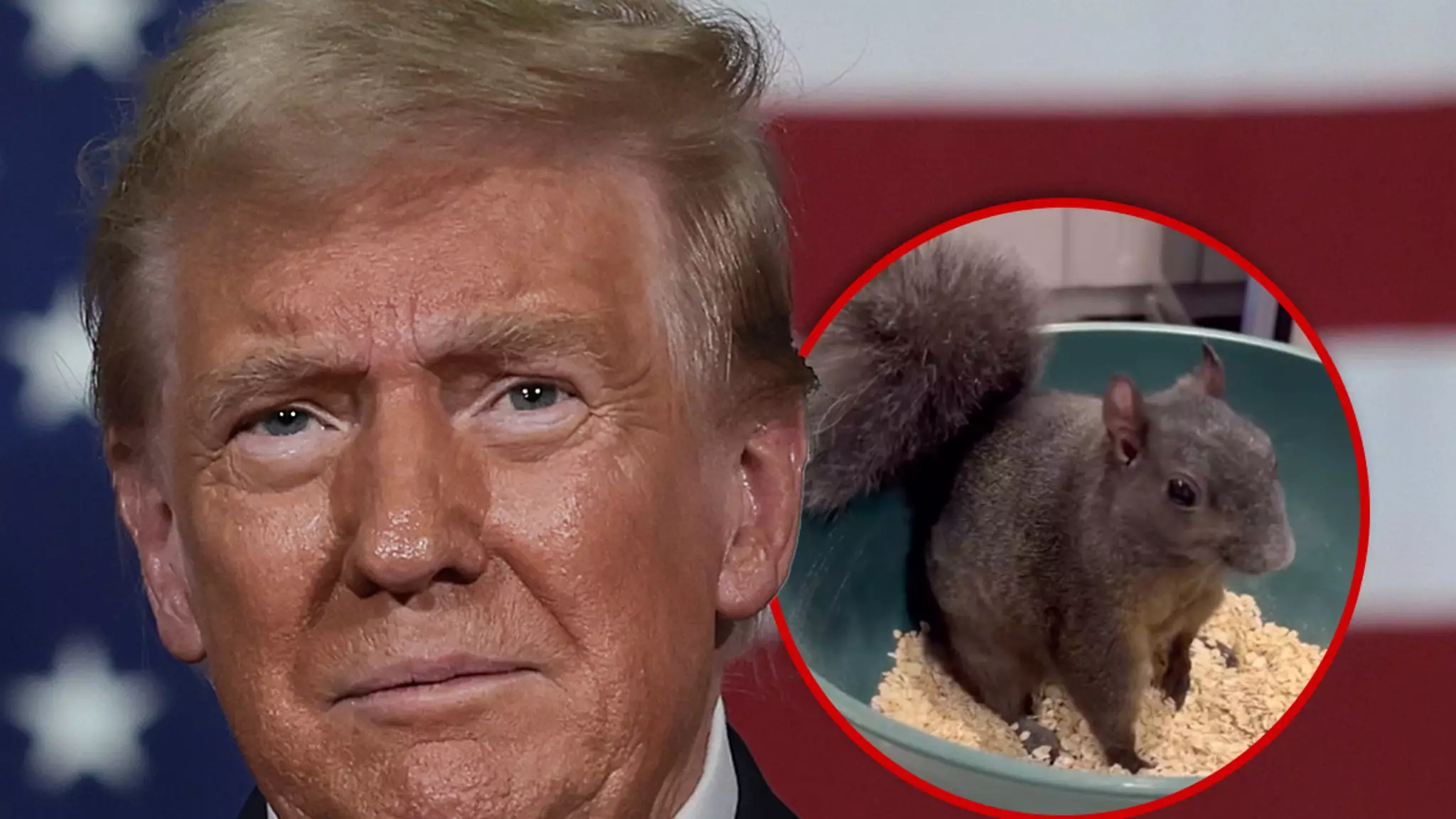On a seemingly typical Saturday morning, the internet erupted with a peculiar headline: Donald Trump had called for justice for a squirrel named Peanut. This unexpected claim sent social media into a frenzy, drawing attention from users across various platforms. However, the sensational press release rapidly unraveled as a hoax, confirmed by Trump’s spokesperson, Steven Cheung. Cheung clarified that Trump had not made any statements regarding the squirrel, nor had he engaged in the conversation surrounding its controversial confiscation and euthanization. This episode serves as a striking reminder of the power and pitfalls of misinformation in the digital age.
The crux of the hoax revolved around an extravagant statement supposedly made by Trump, suggesting that if Peanut had identified himself as being from Mexico, he would have been treated with more compassion by officials. The exaggerated rhetoric highlighted an ironic twist—a fictionalized take on immigration policy framed around the unjust treatment of a beloved pet. This kind of satire may resonate with supporters and detractors alike, shedding light on the absurdity of certain political debates. However, beneath the humor lies a serious issue regarding how such statements can warp public discourse and overshadow real-life concerns.
The backstory behind Peanut adds layers of complexity to the situation. Peanut was not merely a pet but rather a central figure in the life of Mark Longo and his wife, Daniela. The couple passionately defended Peanut against the authorities, who acted on anonymous claims to seize and ultimately euthanize the animal. Longo argued that Peanut was not hidden away; he boasted an impressive social media presence with over 532,000 followers on Instagram, showcasing the popularity and visibility of the squirrel he regarded as an integral part of their family and their efforts running P’Nuts Freedom Farm Animal Sanctuary.
This incident raises questions about government overreach and the arbitrary nature of regulations surrounding pet ownership. Many individuals shared the sentiment that the state’s actions were not only overzealous but also a misuse of authority, placing the welfare of the animal in jeopardy while wasting taxpayer resources in the process. The Longos’ determination to seek justice for Peanut illustrates the emotional toll of such experiences and connects with broader themes concerning the treatment of animals and personal liberties.
Alongside the frenzy surrounding the hoax, a wave of AI-generated artwork featuring Trump and Peanut began to populate social media, reflecting the intersection of technology and modern communication. This phenomenon echoes previous instances where public figures were thrust into humorous or absurd contexts—such as the pet-eating controversy—demonstrating how quickly narratives can shift and evolve online.
In an age where every click and share contributes to a larger narrative, the influence of social media becomes increasingly evident. Individuals can create, perpetuate, or debunk stories instantaneously, unleashing consequences that ripple far beyond the initial tweet or post. While Trump himself has yet to weigh in on the Peanut affair, the cultural clamor surrounding it affirms that the digital world can amplify voices and stories that might otherwise remain unheard.
Ultimately, the saga of Peanut the squirrel encapsulates the volatile nature of social media, sparking dialogues about ethics, governance, and the relationship between humans and animals, proving that even in a world dominated by narratives and noise, real lives and real stories remain at stake.

